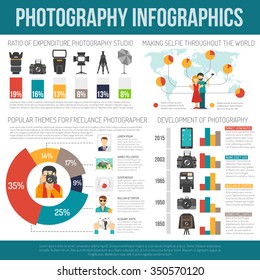What Every Digital Photographer Must Understand About Lighting
What Every Digital Photographer Must Understand About Lighting
Blog Article
Created By-Parks Heath
As a professional photographer, you know that illumination can make or break your photos. Recognizing the subtleties of both natural and artificial light is important for recording the state of mind and quality you go for in your job. Whether you're chasing after the perfect gold hour glow or fine-tuning your man-made setups, mastering these components can elevate your digital photography dramatically. But there are https://www.latimes.com/california/story/2020-05-02/coronavirus-unemployment-gig-workers-benefits-pandemic challenges that many ignore, and recognizing them can transform your strategy to every shoot. Let's discover what you may be missing out on and just how it can affect your results.
Understanding All-natural Light
Understanding natural light is critical for any kind of photographer looking to enhance their job. It's the structure of wonderful photography, affecting state of mind, tone, and clearness. When you shoot outdoors, pay attention to the moment of day. The golden hour-- quickly after daybreak and prior to sunset-- offers soft, warm light that can change normal scenes right into stunning photos.
Do not undervalue the power of cloudy days. Cloud cover diffuses sunshine, developing a soft, even light that's ideal for portraits and macro digital photography. http://norman843janae.xtgem.com/__xt_blog/__xtblog_entry/__xtblog_entry/37566229-creative-digital-photography-ideas-unleashing-your-creativity?__xtblog_block_id=1#xt_blog 'll discover shades pop in this sort of illumination without harsh shadows.
Placing matters, too. Always consider your topic's orientation to the light source. If the sun's behind your topic, you might end up with a silhouette, which can be significant yet mightn't be what you desire. On the other hand, straight sunshine can produce unflattering shadows.
Trying out angles; often, changing your perspective can produce impressive results. Usage natural reflectors, like water or sand, to bounce light onto your subject, including dimension.
Mastering Artificial Light
Understanding artificial light is essential for digital photographers who wish to take their skills to the next level. Whether you're utilizing speedlights, studio strobes, or continual lights, understanding just how to control these sources can drastically improve your pictures.
Beginning by acquainting yourself with the essentials of light quality, direction, and color temperature level. Trying out different modifiers like softboxes, umbrellas, or grids to manage the softness or cruelty of the light.
You'll discover that soft light often develops lovely outcomes, while harsher light can add dramatization and depth. Do not avoid darkness; they can boost the three-dimensionality of your subjects.
Pay attention to the placement of your lights. A light located as well close to your topic can produce uncomplimentary outcomes, while too far away can bring about a lack of detail. Use a light meter or your video camera's pie chart to guarantee you're revealing appropriately.
Finally, bear in mind that fabricated light can be mixed with ambient light for innovative effects. Stabilizing these resources could take method, but once you master it, your digital photography will absolutely radiate.
Techniques for Various Situations
When you step into different capturing circumstances, adapting your lights techniques is important for catching the most effective images. For outdoor pictures, utilize the gold hour-- early morning or late afternoon light-- to soften shadows and enhance complexion.
If it's a severe lunchtime sun, take into consideration using a reflector to jump light back onto your subject or look for shaded locations for a much more also direct exposure.
In copyright Pr photo near me -light scenarios, like indoor occasions, raise your ISO and use a broad aperture to allow in even more light. A tripod can assist remove cam shake, allowing for longer direct exposures without obscuring.
If you're shooting at evening, trying out off-camera flash to produce vibrant lights and deepness in your images.
For product digital photography, make use of diffused illumination to prevent harsh representations. Softboxes or light camping tents can aid achieve this impact.
When photographing landscapes, take into consideration the instructions of light and time of day, as it can dramatically alter the state of mind of your shot.
Constantly prepare to change your settings and positioning based upon the situation, as versatility is key to mastering lighting in digital photography.
Verdict
To conclude, mastering lights is essential to elevating your photography skills. Embrace natural light's beauty during gold hour, and do not shy away from trying out artificial light techniques. By adapting your strategy to different situations, you'll catch spectacular pictures that resonate with emotion and clearness. Bear in mind, the best lighting can transform a common shot into something extraordinary, so keep exercising and fine-tuning your understanding of both natural and artificial light. Happy capturing!
